After three and a half years of rancour, bitterness, protests, paralysis, division and – just occasionally – real debate, the UK has left the European Union after 47 years of membership. For millions of people, including me, it is a moment of deep regret and mourning.
For all the hullabaloo of the past few weeks over whether Big Ben should chime to mark the moment, I personally feel that bells should be tolling for what we have lost – including the right to work, study, live and love in 27 countries.
We are now out of the EU, but we have not got Brexit done – whatever Boris Johnson promised during the election campaign. Very little will change immediately as we drift into the transition period. Beneath that apparent calm will be frantic negotiations which will shape not only our future relationship with the EU, but what kind of country we want to be.
Download the new Independent Premium app
Sharing the full story, not just the headlines
Some of the loudest voices behind Brexit were those of English nationalists pushing an image lifted from the 1950s, driven by xenophobia and a narrow-minded view of what we should be as a country. We cannot allow these views to triumph. Our challenge now is to defend values of openness, liberal democracy, pluralism, free speech and the rule of law – values we share with our European neighbours.
I remain convinced that what drove many to vote to leave the EU was a sense of powerlessness. Last year, as part of a project I called “Dear Leavers”, I travelled around the country to areas which voted for Brexit and heard very clearly people’s anger and frustration that they were simply being ignored by politicians in Westminster. When the opportunity came for them to give the political establishment a good kicking, it’s not surprising that they took it.
It can’t be a coincidence that most of those parts of the UK where there is local democratic control voted to remain in the EU. Significantly, all the UK’s regional assemblies – Holyrood, Stormont and the Welsh assembly – voted against the EU Withdrawal Bill, thereby refusing consent for UK government legislation which will affect them all.
The vote for Brexit was a resounding rejection of the status quo and our broken democracy. People are fed up with politics being done to them, rather than by them or with them. That has to change, but the early signs don’t look promising.
The government’s bill doesn’t give communities back control. It doesn’t even give parliament back control, despite all those hollow slogans from Brexiteers about parliament being sovereign again. Any control is firmly in Downing Street which is using our exit from the EU as a massive power-grab.
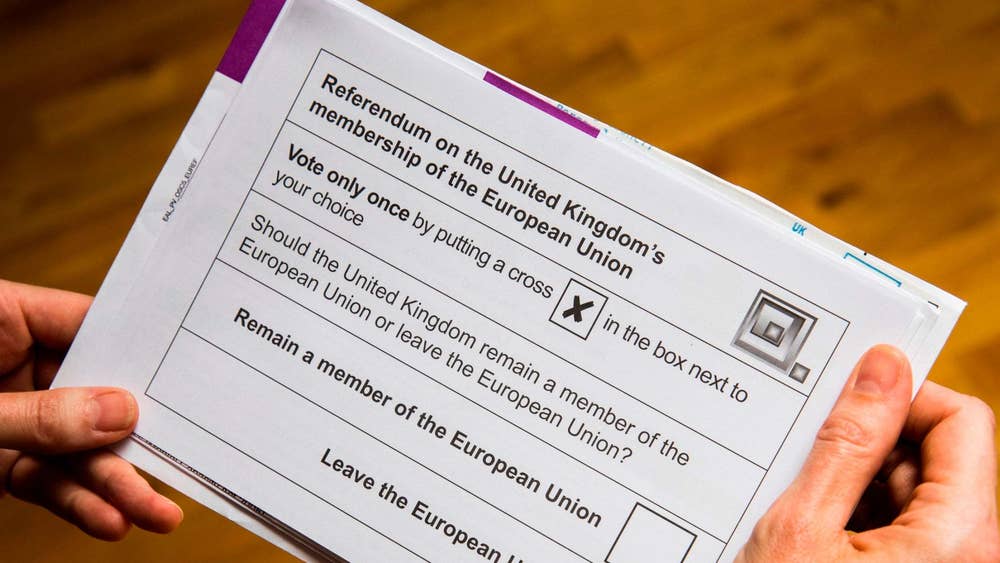
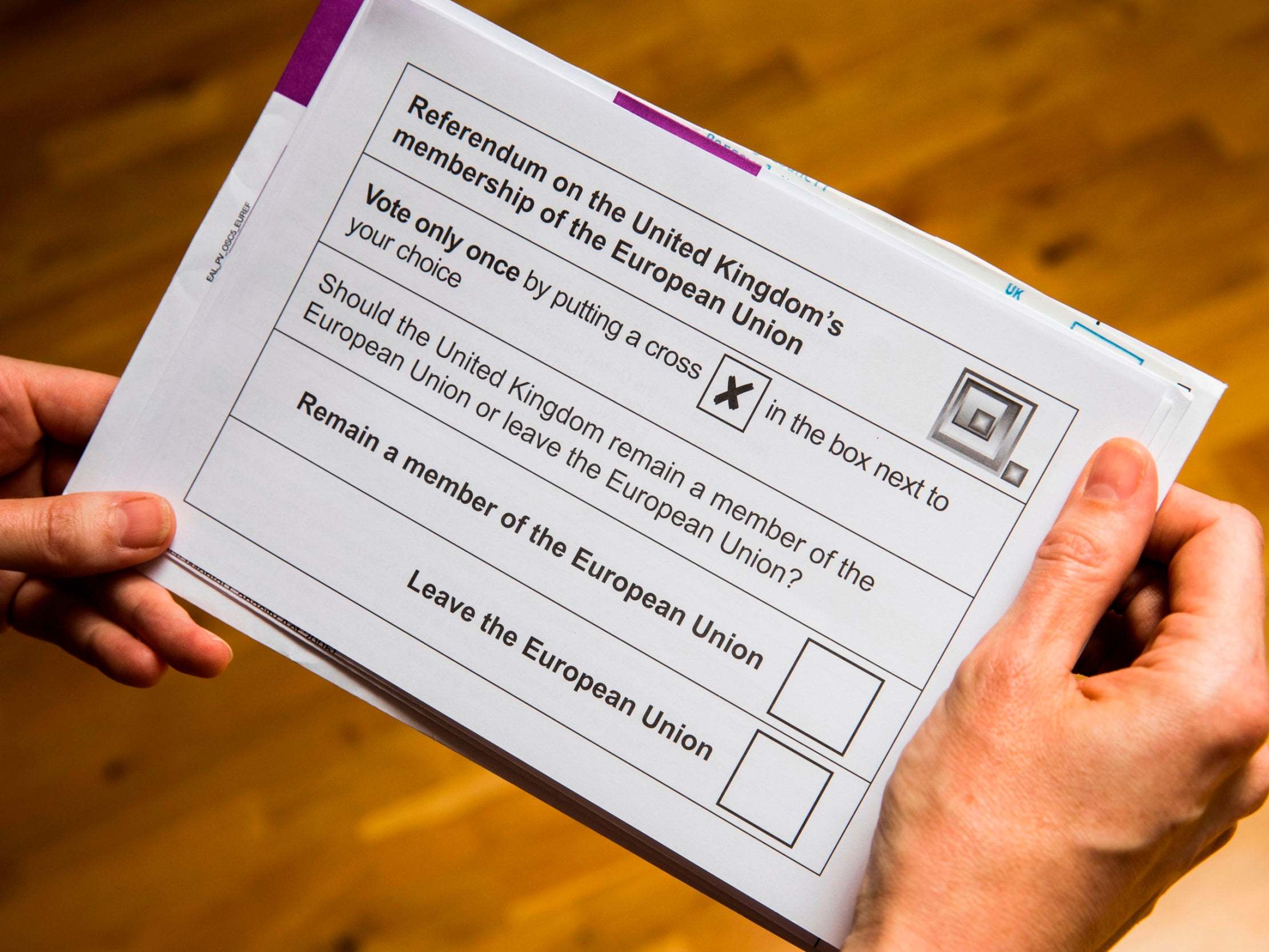
1/20 Britain votes to leave the European Union – 23 June 2016
A referendum is held on Britain’s membership of the European Union. Fifty-two per cent of the country votes in favour of leaving
AFP via Getty
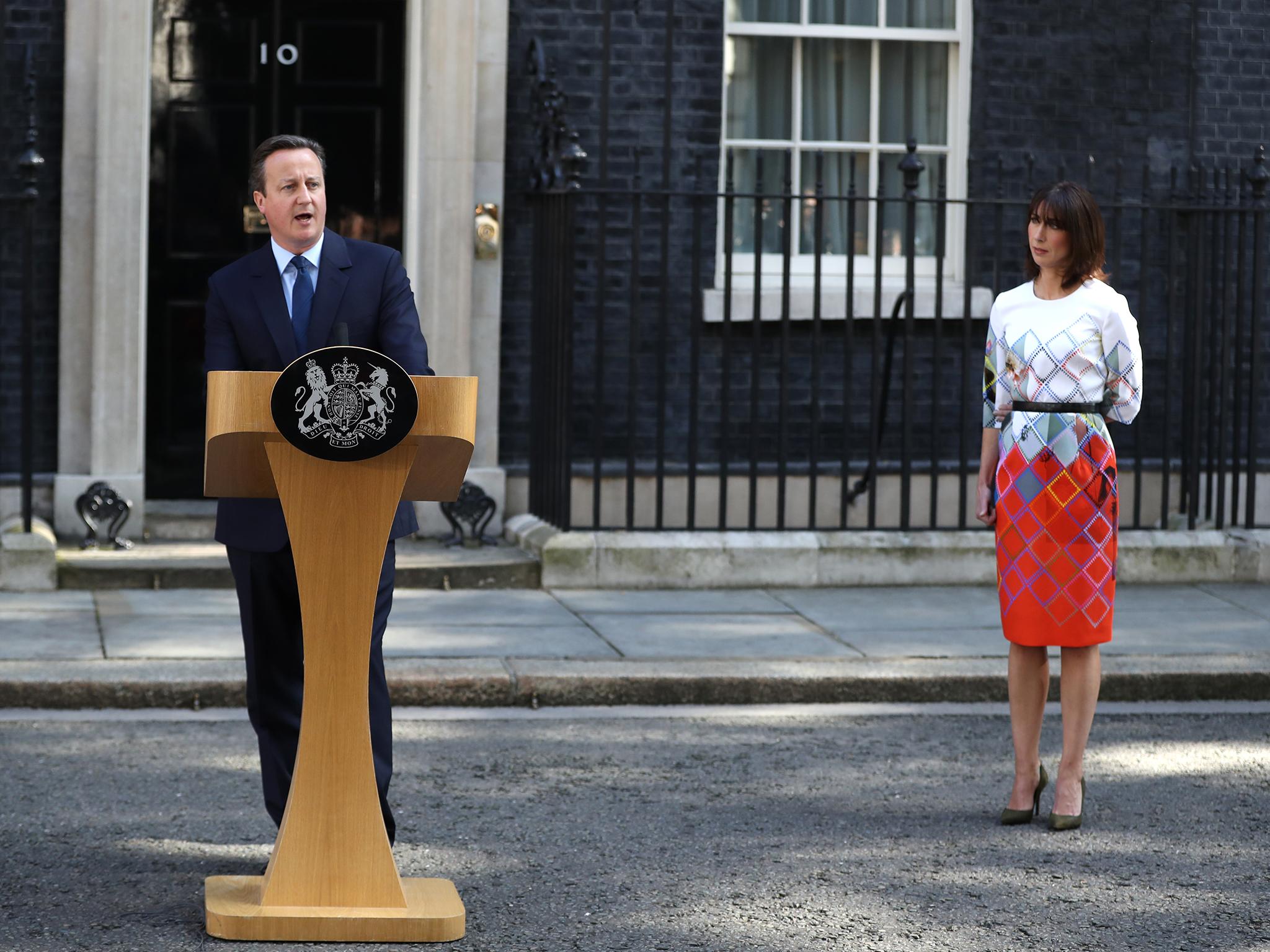
2/20 David Cameron resigns – 24 June 2016
David Cameron resigns on the morning of the result after leading the campaign for Britain to remain in the EU
Getty
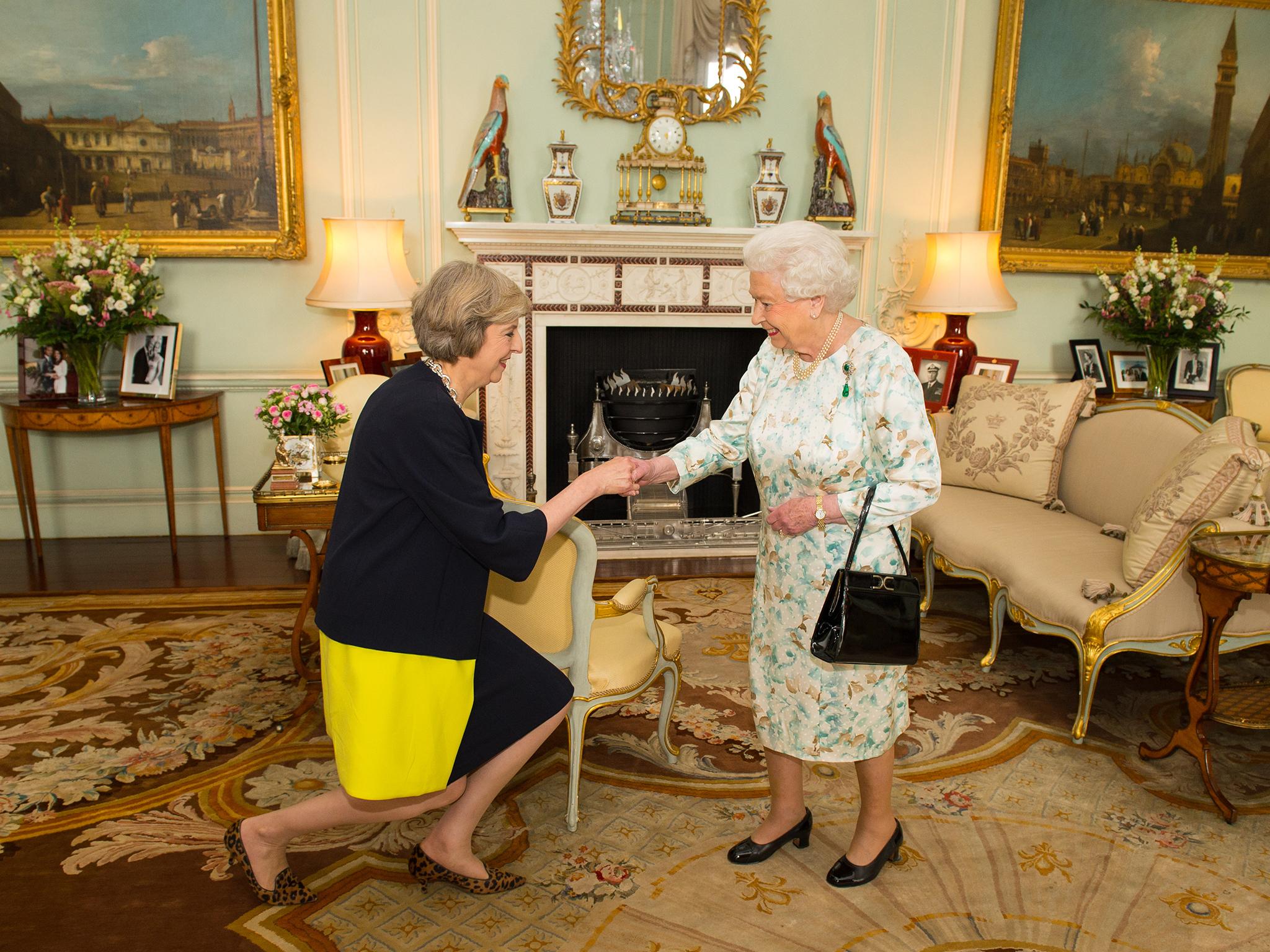
3/20 Theresa May takes the reins – 13 July 2016
Theresa May becomes leader of the Conservative party and prime minister, winning the leadership contest unopposed after Andrea Leadsom drops out
Getty
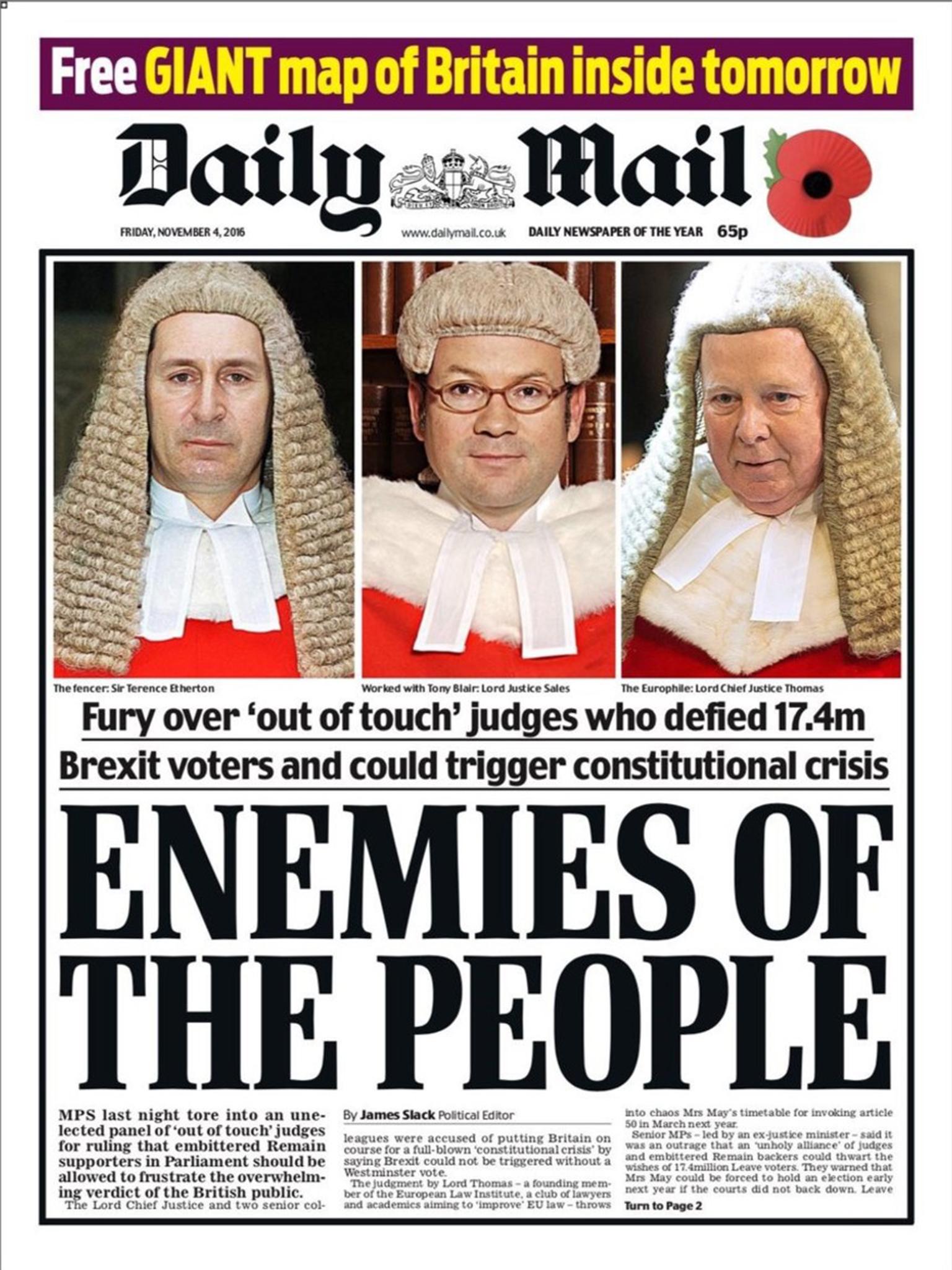
4/20 High Court rules parliament must vote on Brexit – November 2016 – 3 November 2016
The High Court rules that parliament must vote on triggering Article 50, which would begin the Brexit process
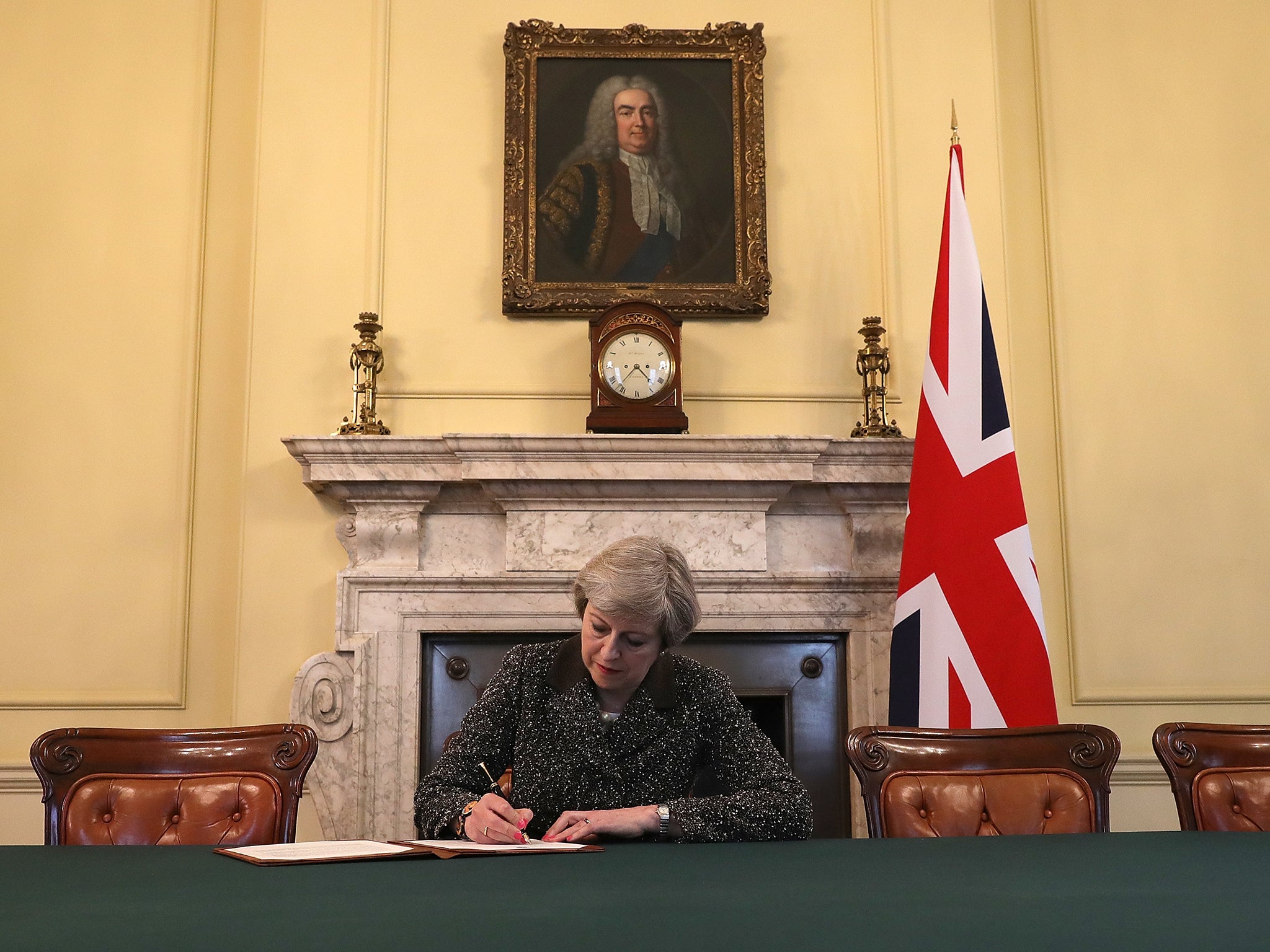
5/20 Article 50 triggered – 28 March 2017
The prime minister triggers Article 50 after parliament endorses the result of the referendum
Getty
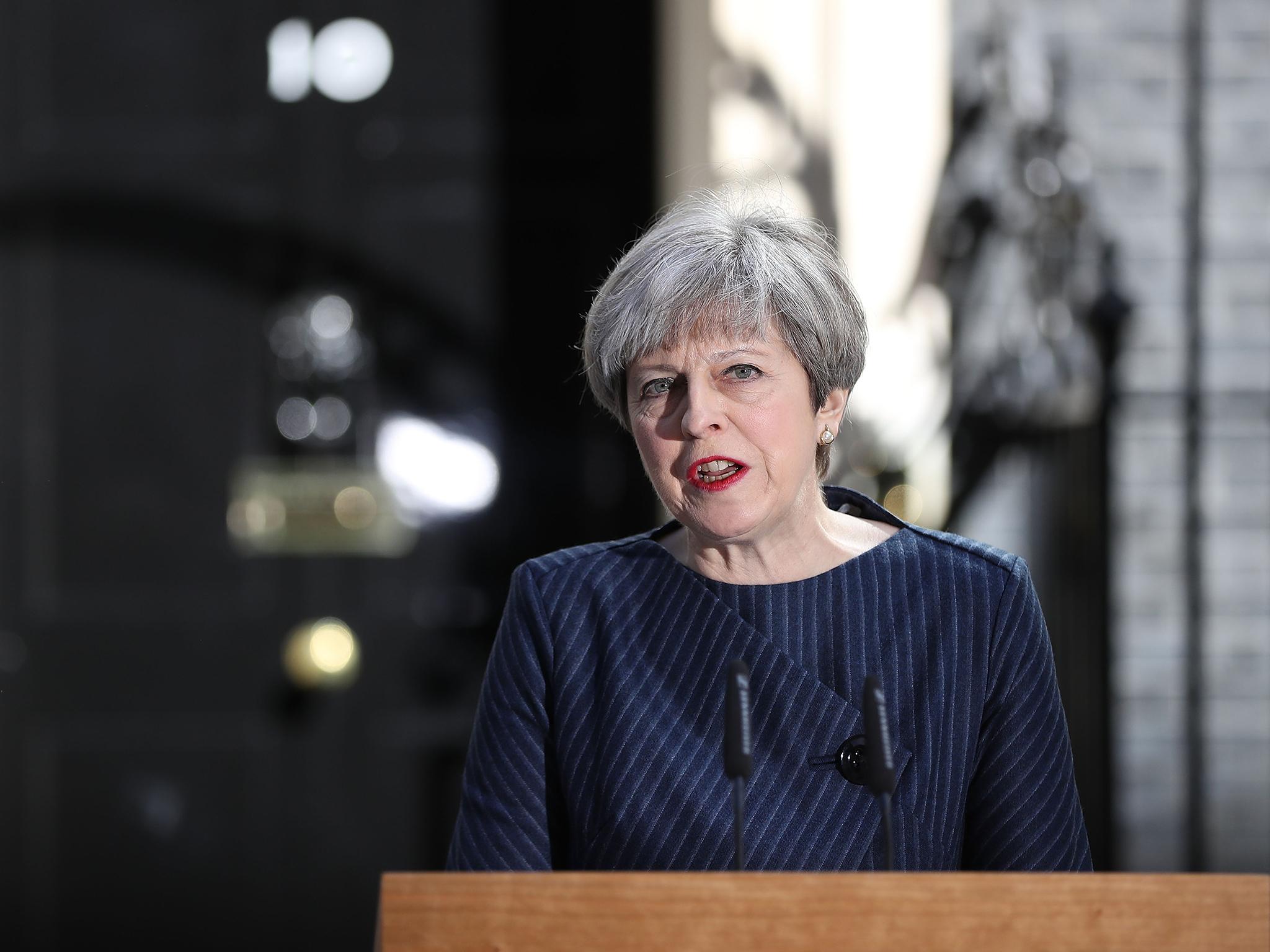
6/20 May calls snap election – 18 April 2018
Seeking a mandate for her Brexit plan, May goes to the country
Getty
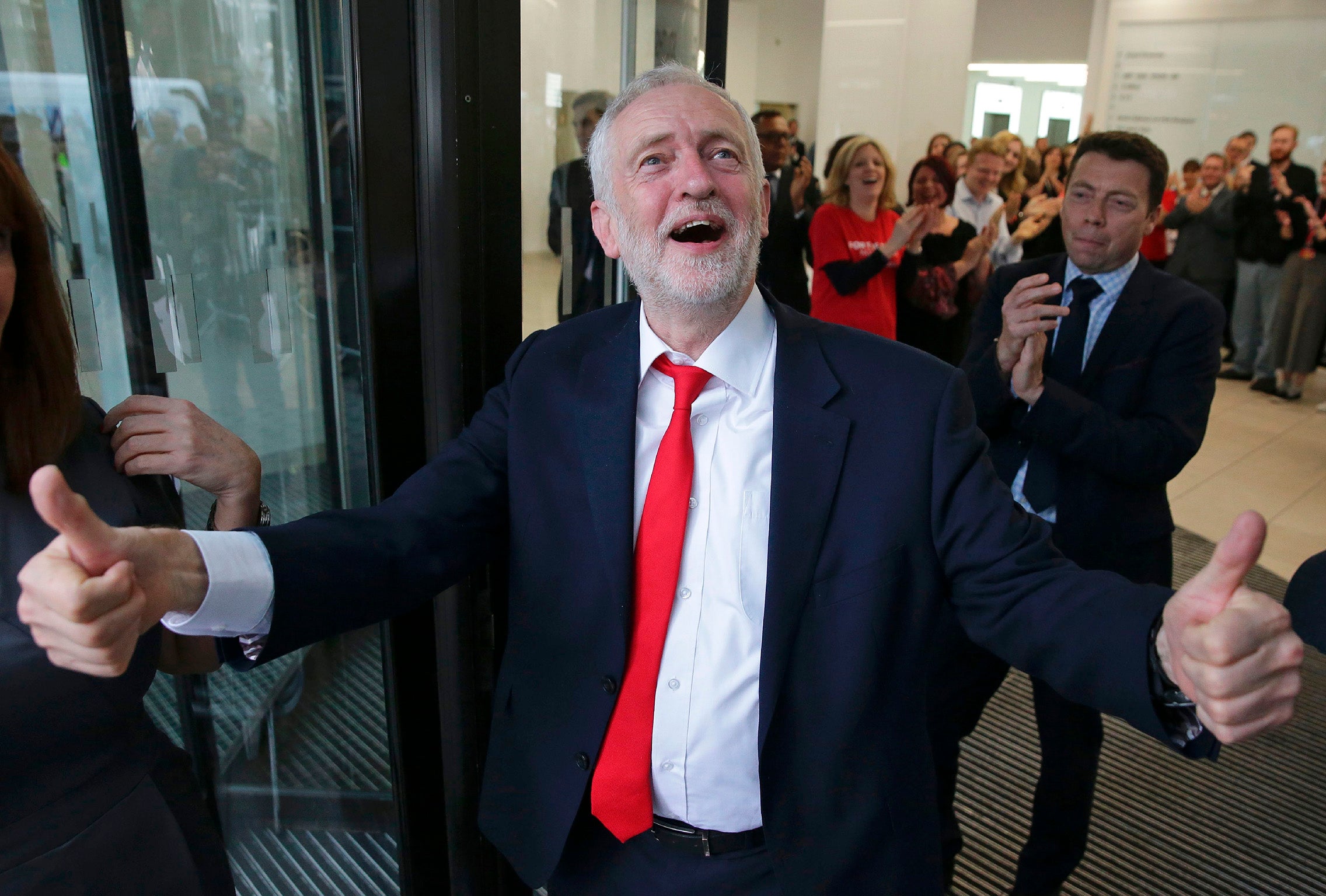
7/20 May loses majority as Labour makes surprise gain – 8 June 2017
After a disastrous campaign, Theresa May loses her majority in the commons and turns to the DUP for support. Jeremy Corbyn’s Labour party makes gains after being predicted to lose heavily
AFP/Getty
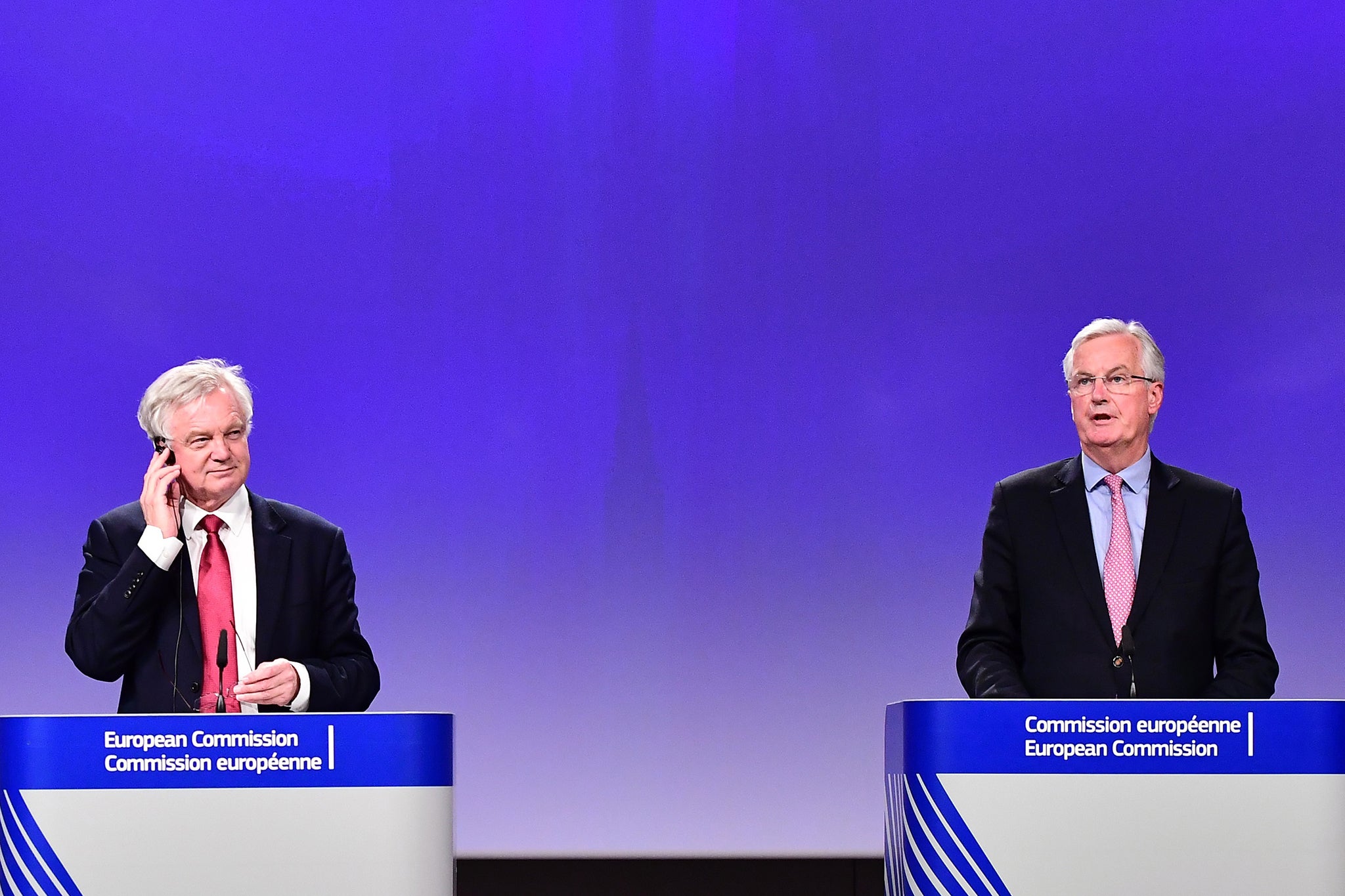
8/20 Negotiations begin – 19 June 2017
David Davis and Michel Barnier, chief negotiators for the UK and EU respectively, hold a press conference on the first day of Brexit negotiations. Soon after the beginning of negotiations, it becomes clear that the issue of the border between Northern Ireland and the Republic will prove a major sticking point
AFP/Getty
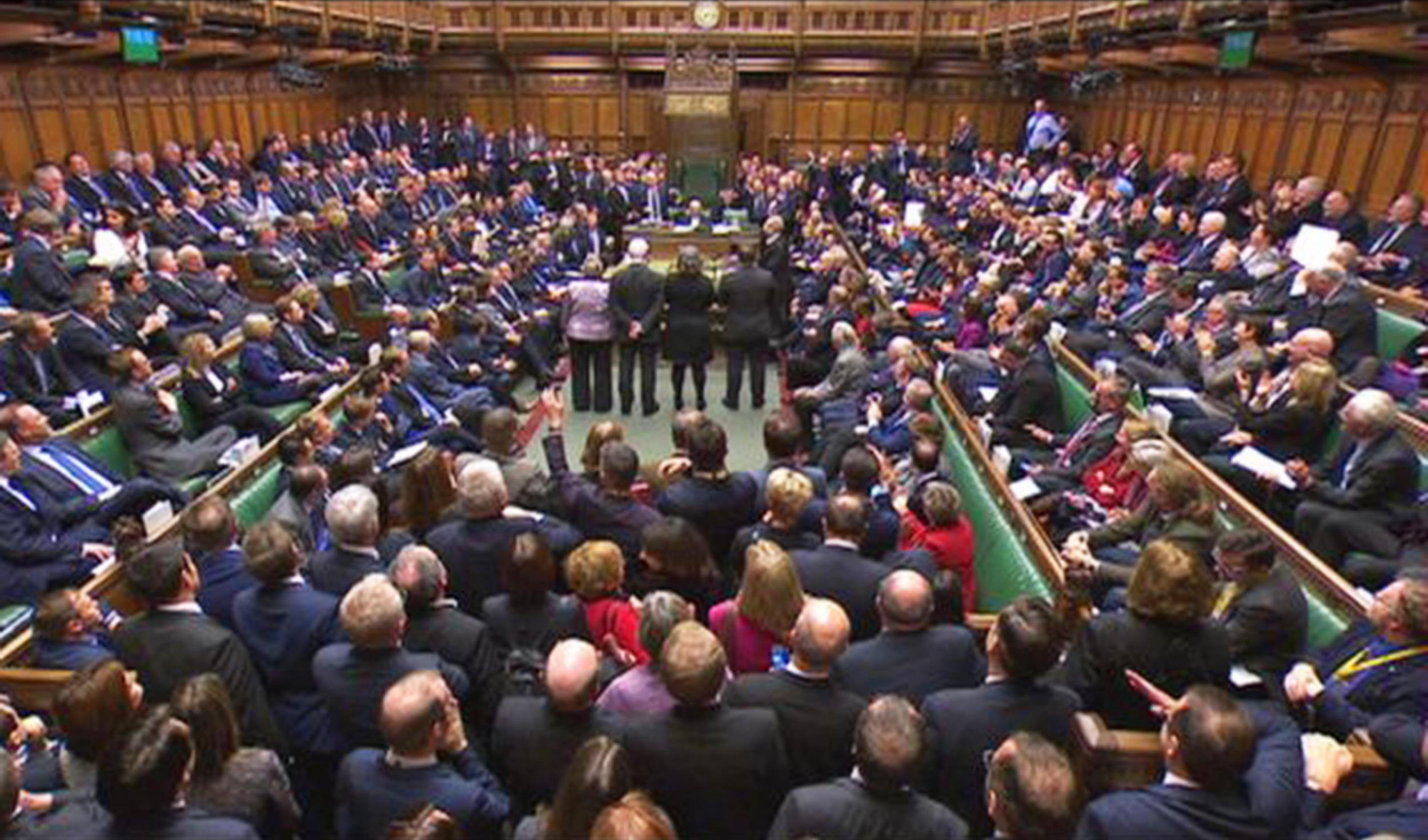
9/20 MPs vote that withdrawal deal must be ratified by parliament – 13 December 2017
The government suffers a defeat in parliament over the EU withdrawal agreement, guaranteeing that MPs are given a ‘meaningful vote’ on the deal
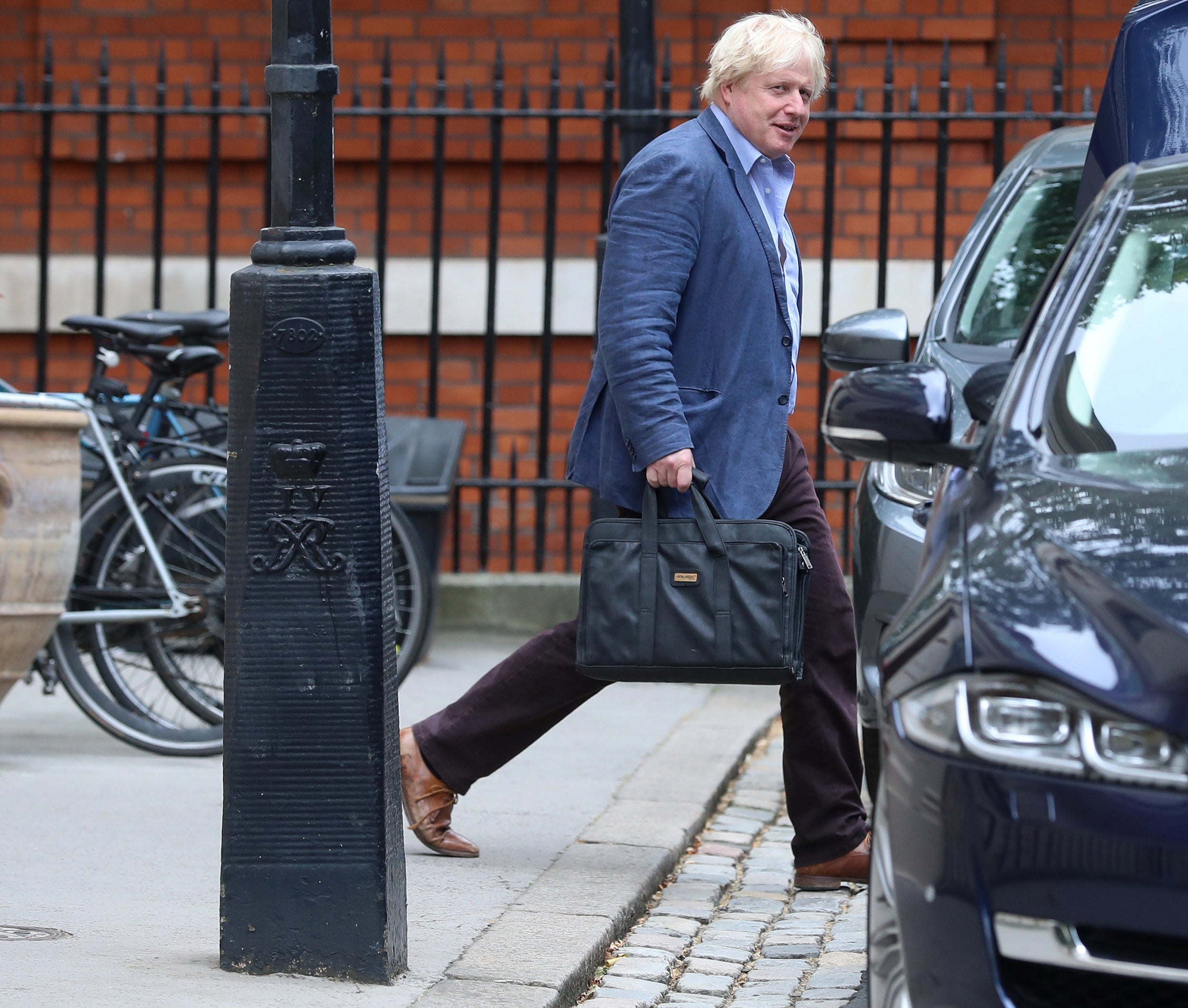
10/20 Boris Johnson resigns as foreign secretary – 11 July 2018
Following a summit at Chequers where the prime minister claimed to have gained cabinet support for her deal, Boris Johnson resigns as foreign secretary along with David Davis, the Brexit secretary
Reuters
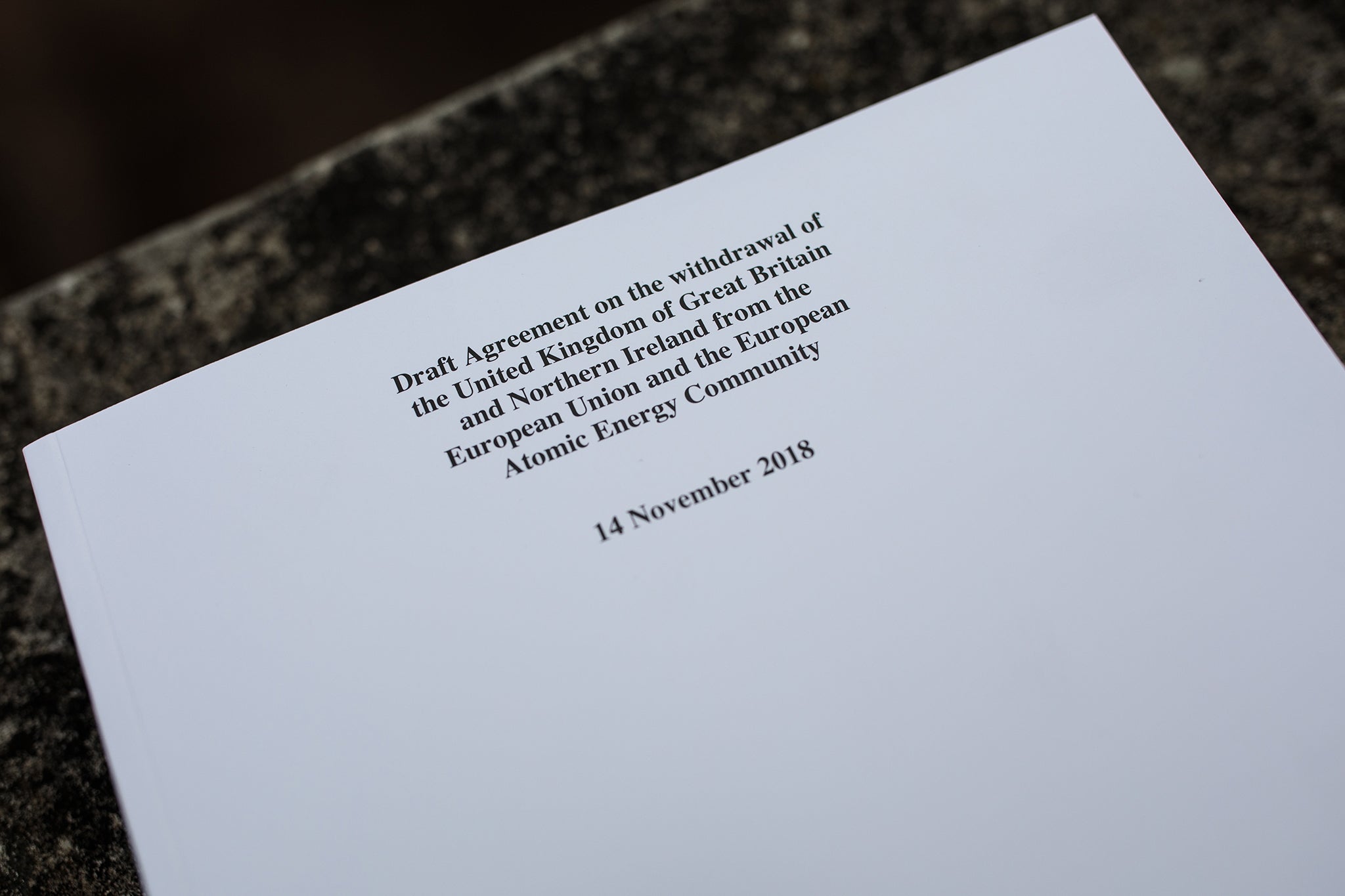
11/20 Draft withdrawal agreement – 15 November 2018
The draft withdrawal agreement settles Britain’s divorce bill, secures the rights of EU citizens living in the UK and vice versa and includes a political declaration commiting both parties to frictionless trade in goods and cooperation on security matters. The deal also includes the backstop, which is anathema to many brexiteers and Dominic Raab and Esther McVey resign from the cabinet in protest
Getty
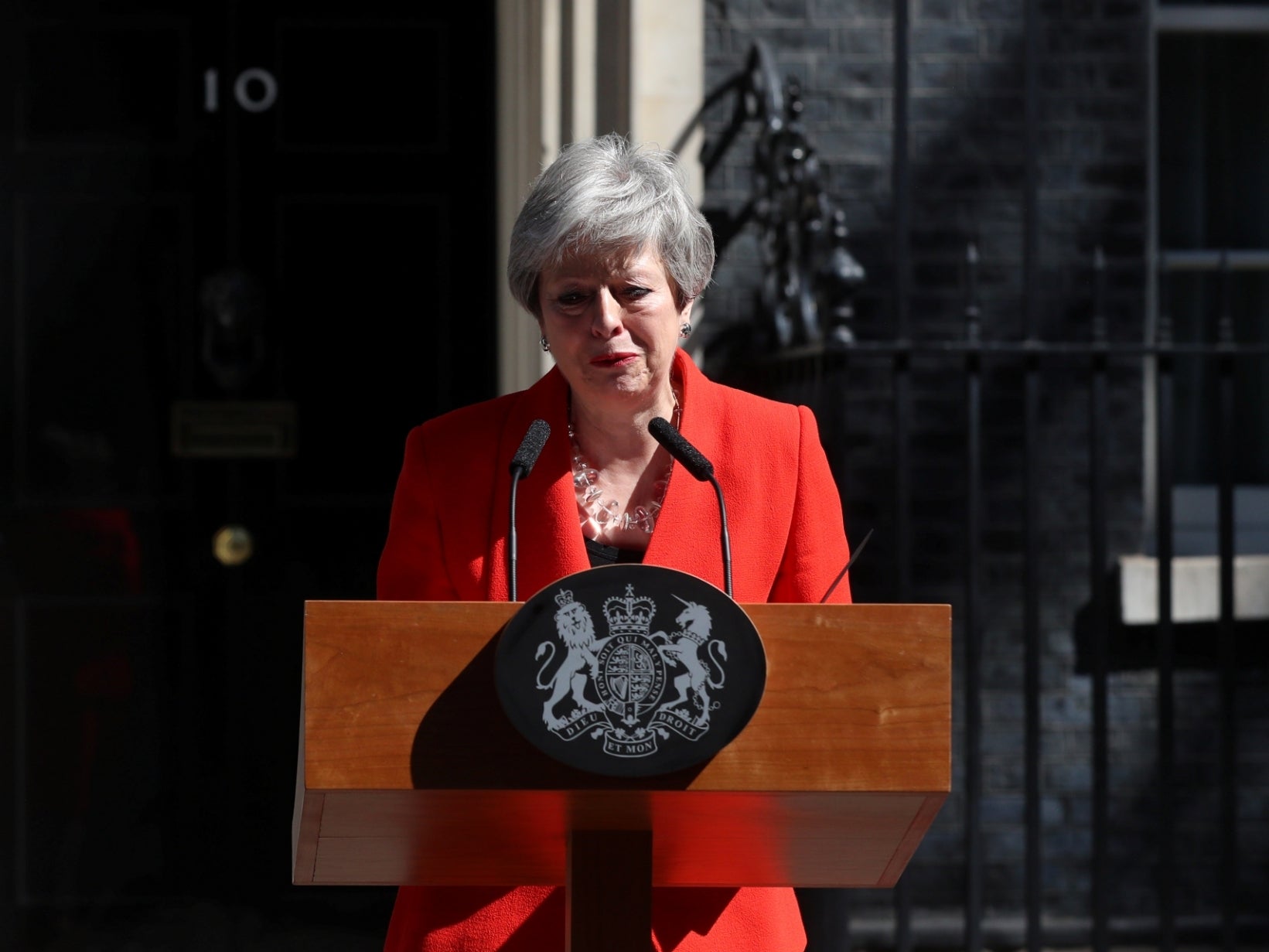
12/20 May resigns – 24 May 2019
After several failed attempts to pass her withdrawal agreement through the commons, Theresa May resigns
Reuters
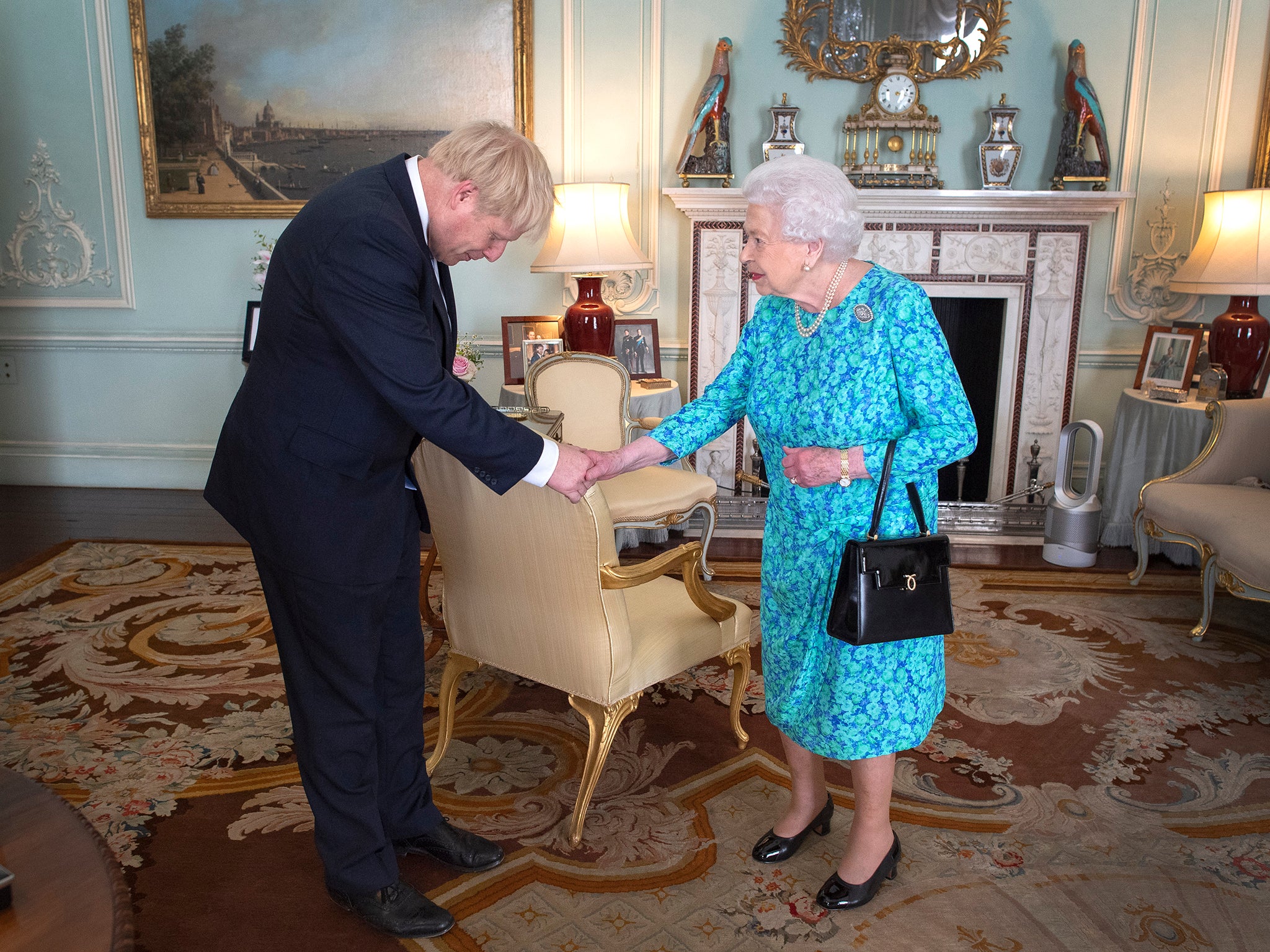
13/20 Johnson takes over – 24 July 2019
Boris Johnson is elected leader of the Conservative party in a landslide victory. He later heads to Buckingham Palace where the Queen invites him to form a government
Getty

14/20 Parliament prorogued – 28 August 2019
Boris Johnson prorogues parliament for five weeks in the lead up to the UK’s agreed departure date of 31 October.
Stephen Morgan MP
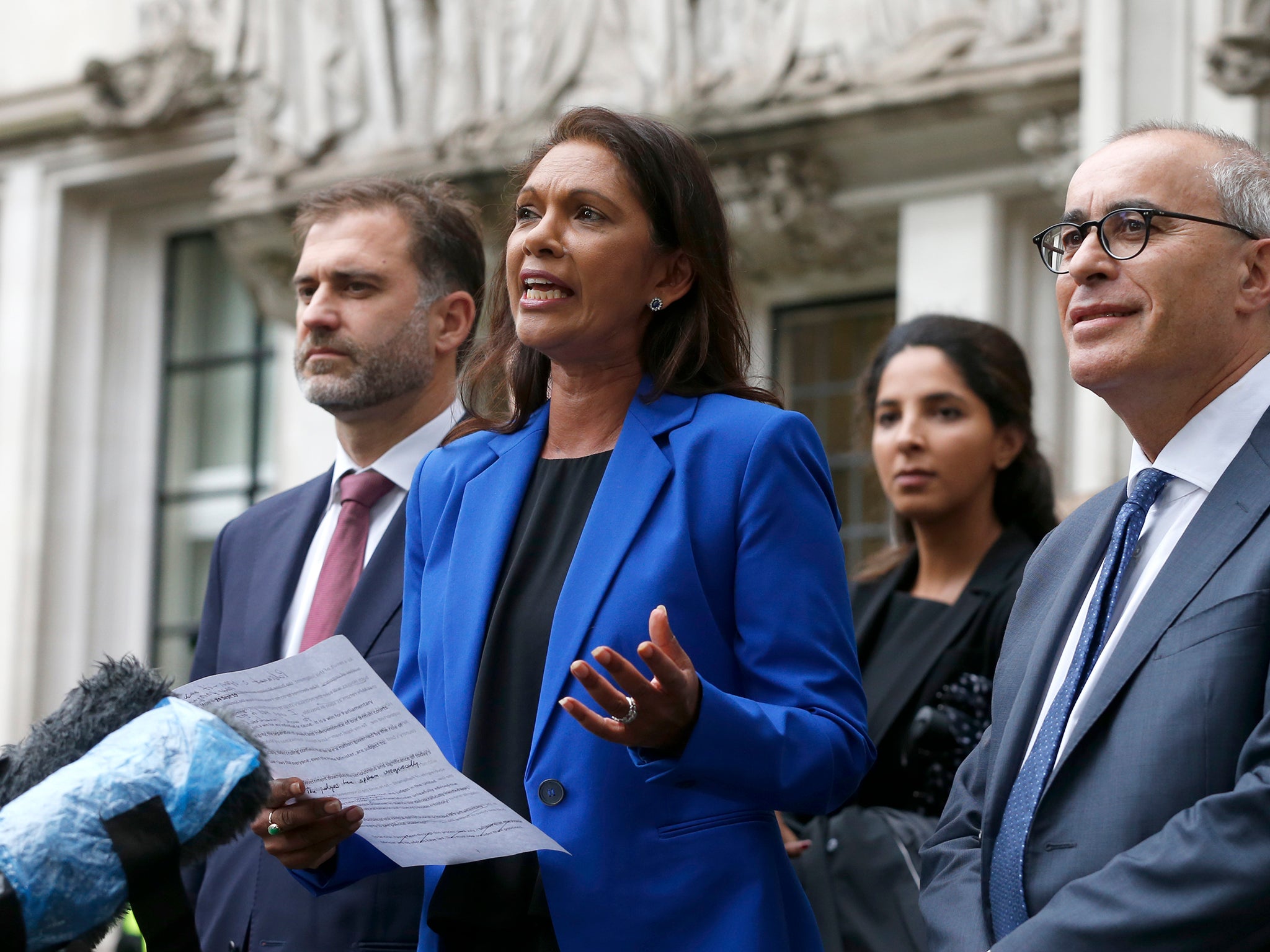
15/20 Prorogation ruled unlawful – 24 September 2019
The High Court rules that Johnson’s prorogation of parliament is ‘unlawful’ after a legal challenge brought by businesswoman Gina Miller
Getty
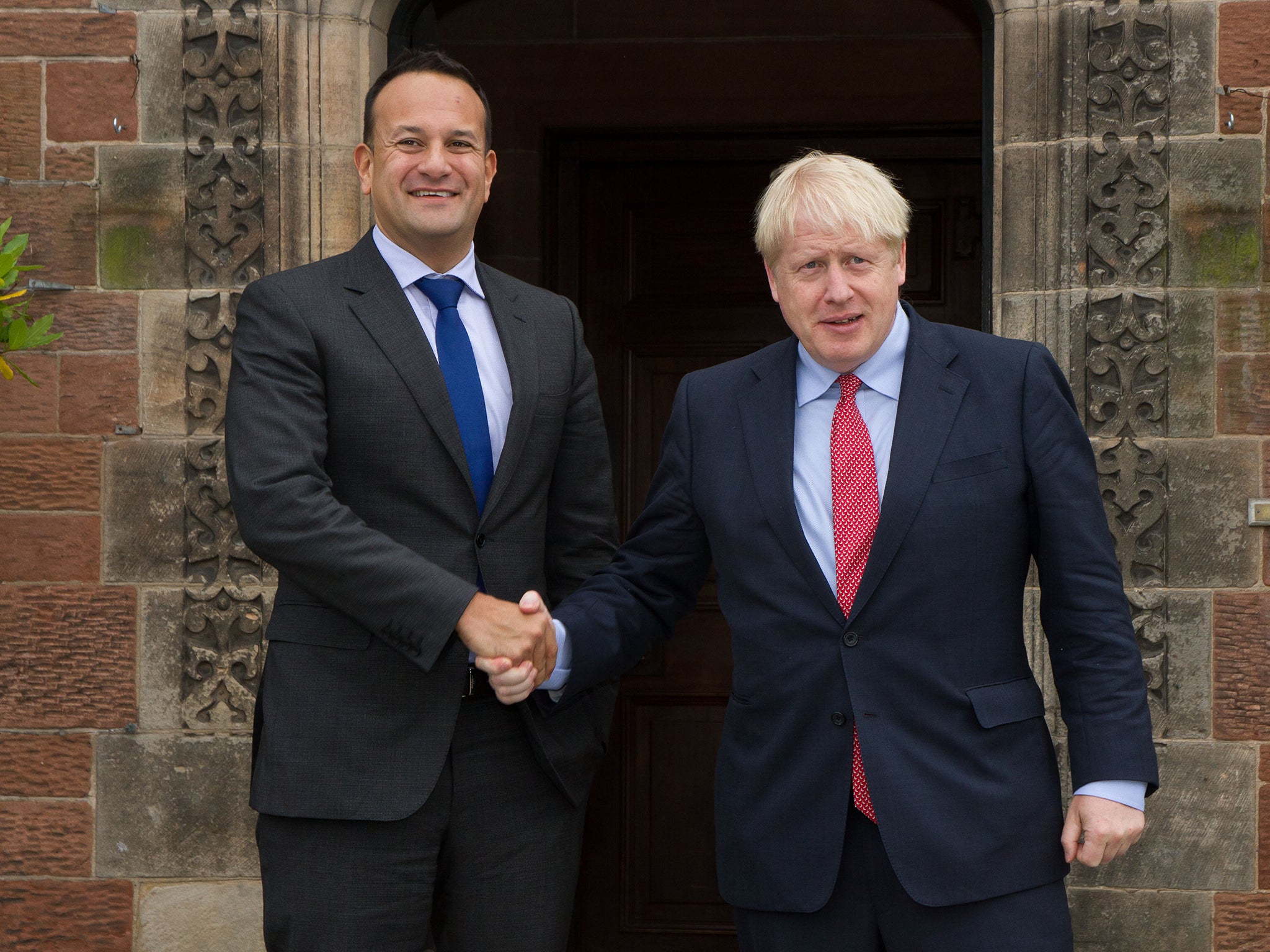
16/20 Johnson agrees deal with Varadkar – October
Following a summit in Merseyside, Johnson agrees a compromise to the backstop with Irish prime minister Leo Varadkar – making the withdrawal agreement more palatable to Brexiteers
Getty
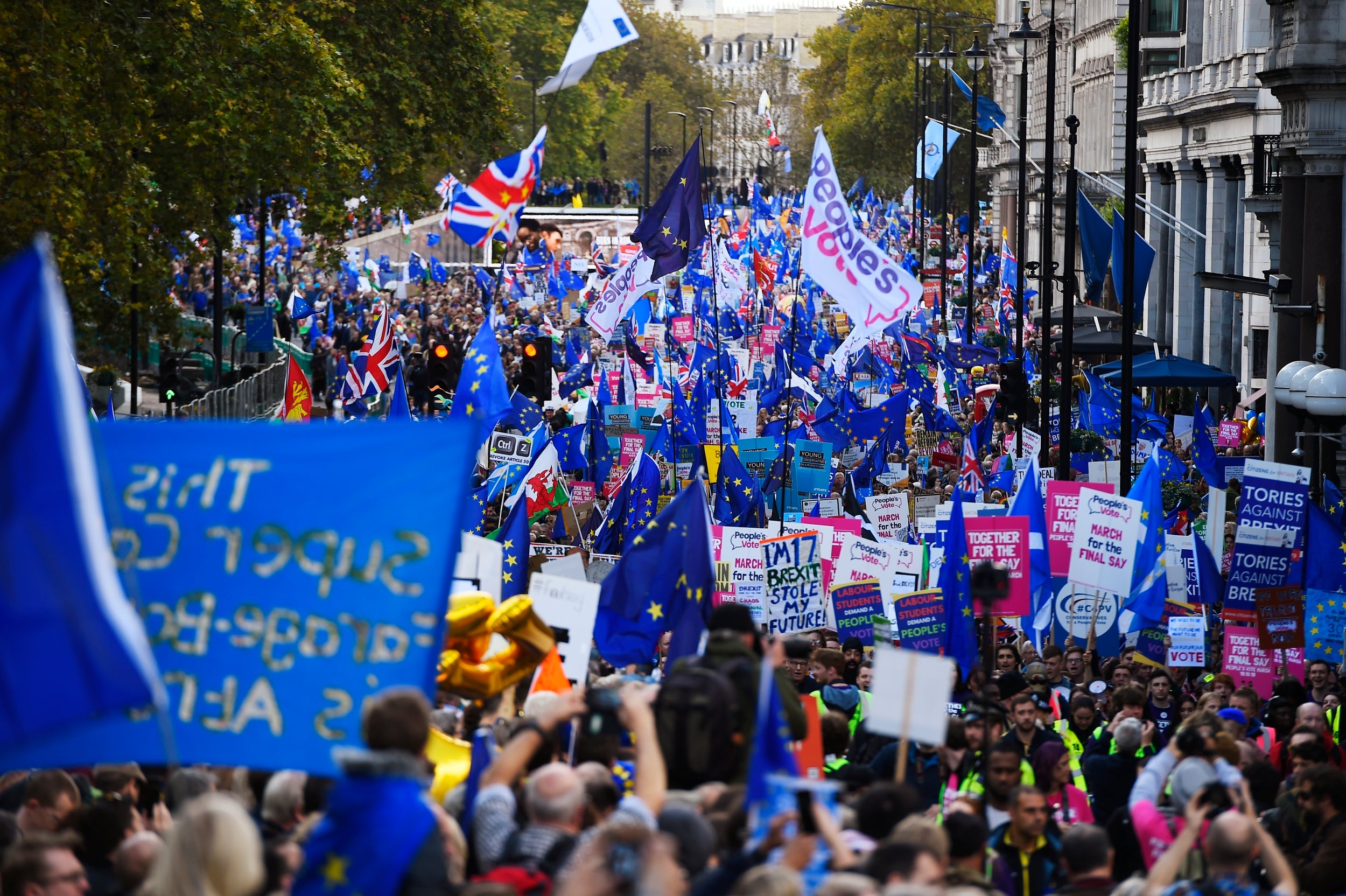
17/20 Final Say march demands second referendum – 19 October 2019
As parliament passes the Letwin amendment requiring the prime minister to request a further delay to Brexit, protesters take to the streets in the final show of force for a Final Say referendum
Getty
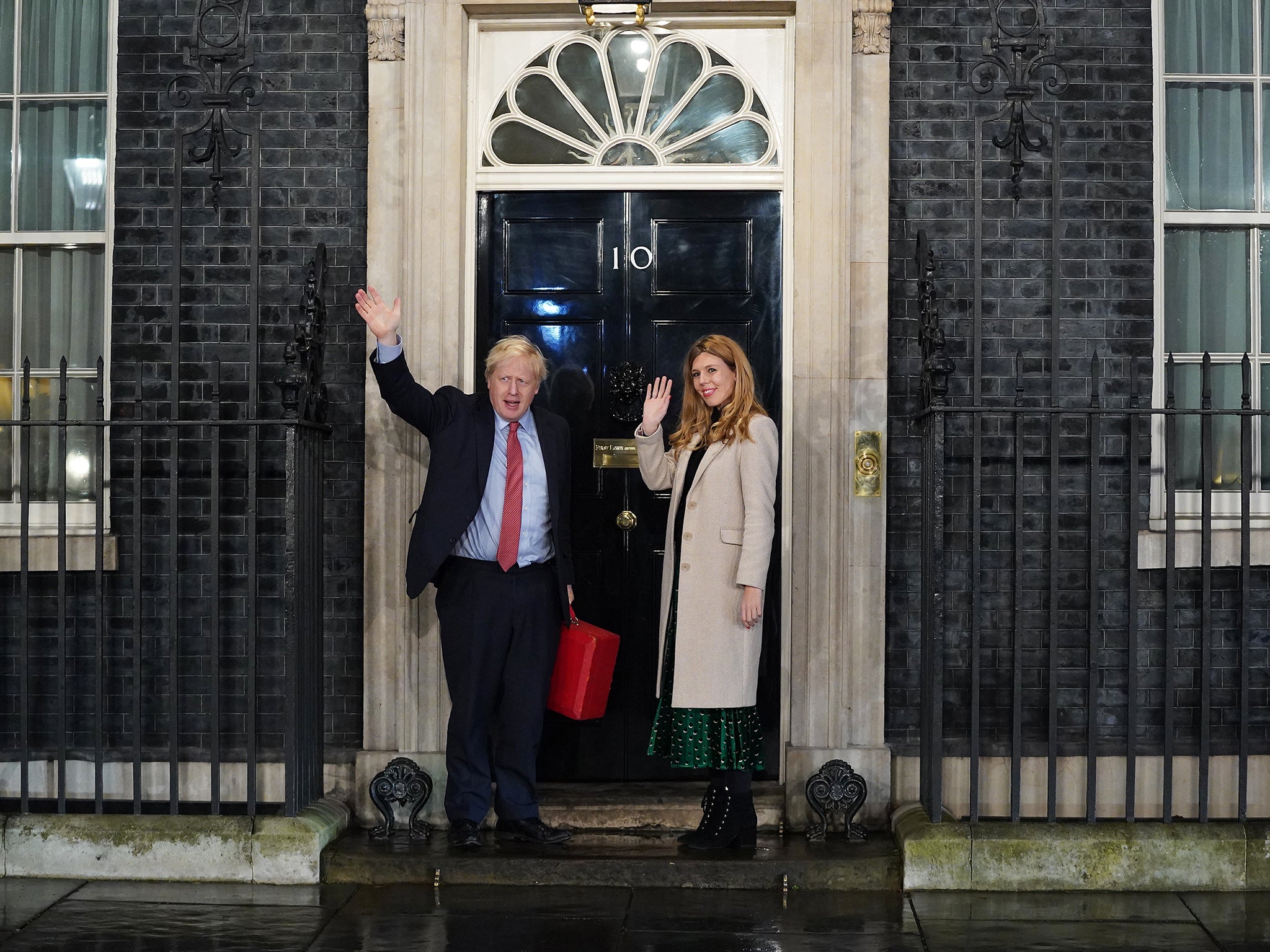
18/20 Johnson wins 80 seat majority – 12 December 2019
The Conservatives win the December election in a landslide, granting Boris Johnson a large majority to pass through his brexit deal and pursue his domestic agenda
Getty
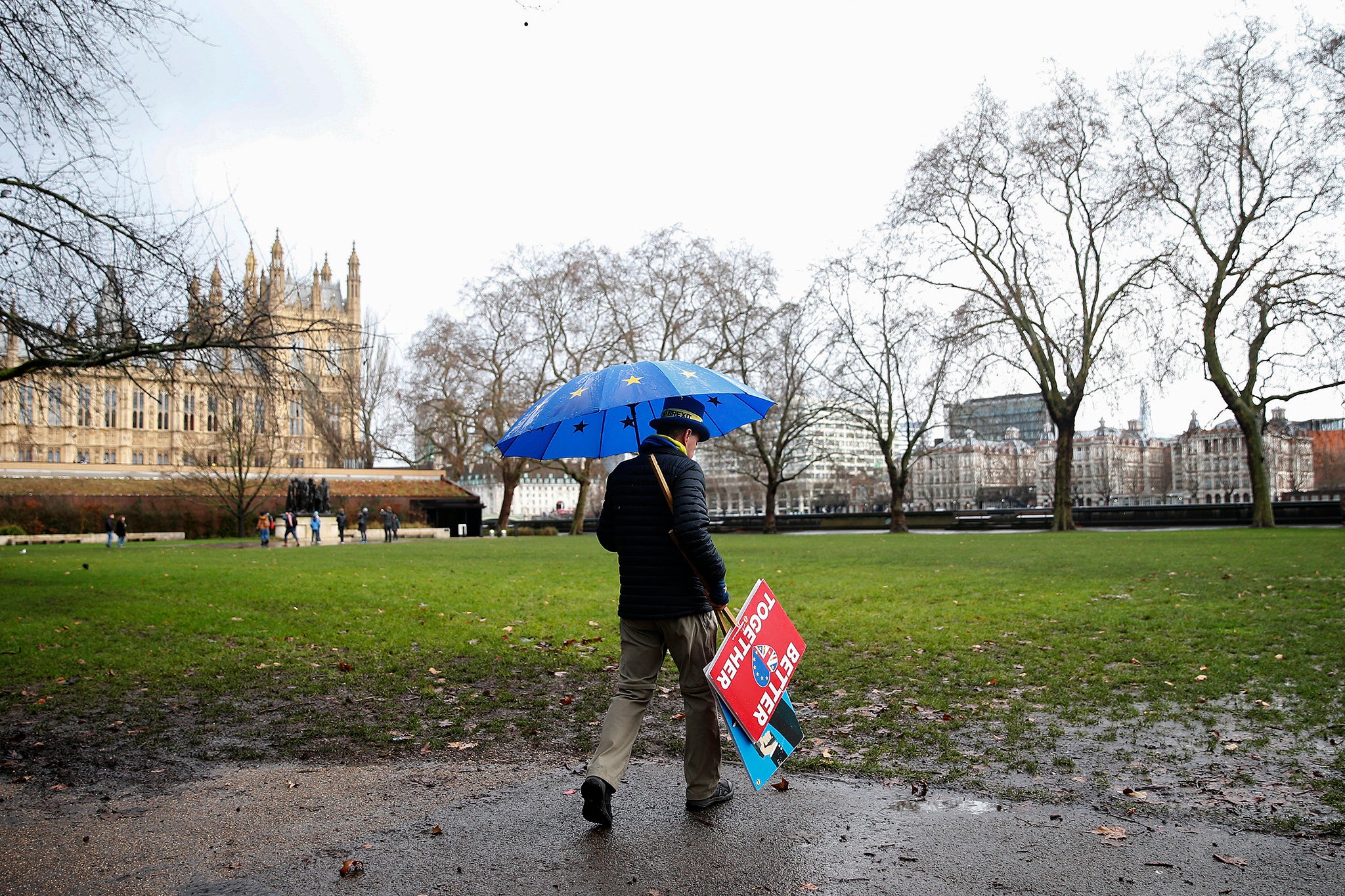
19/20 Withdrawal deal passes parliament – 20 December 2019
The withdrawal agreement passes through the commons with a majority of 124
Getty
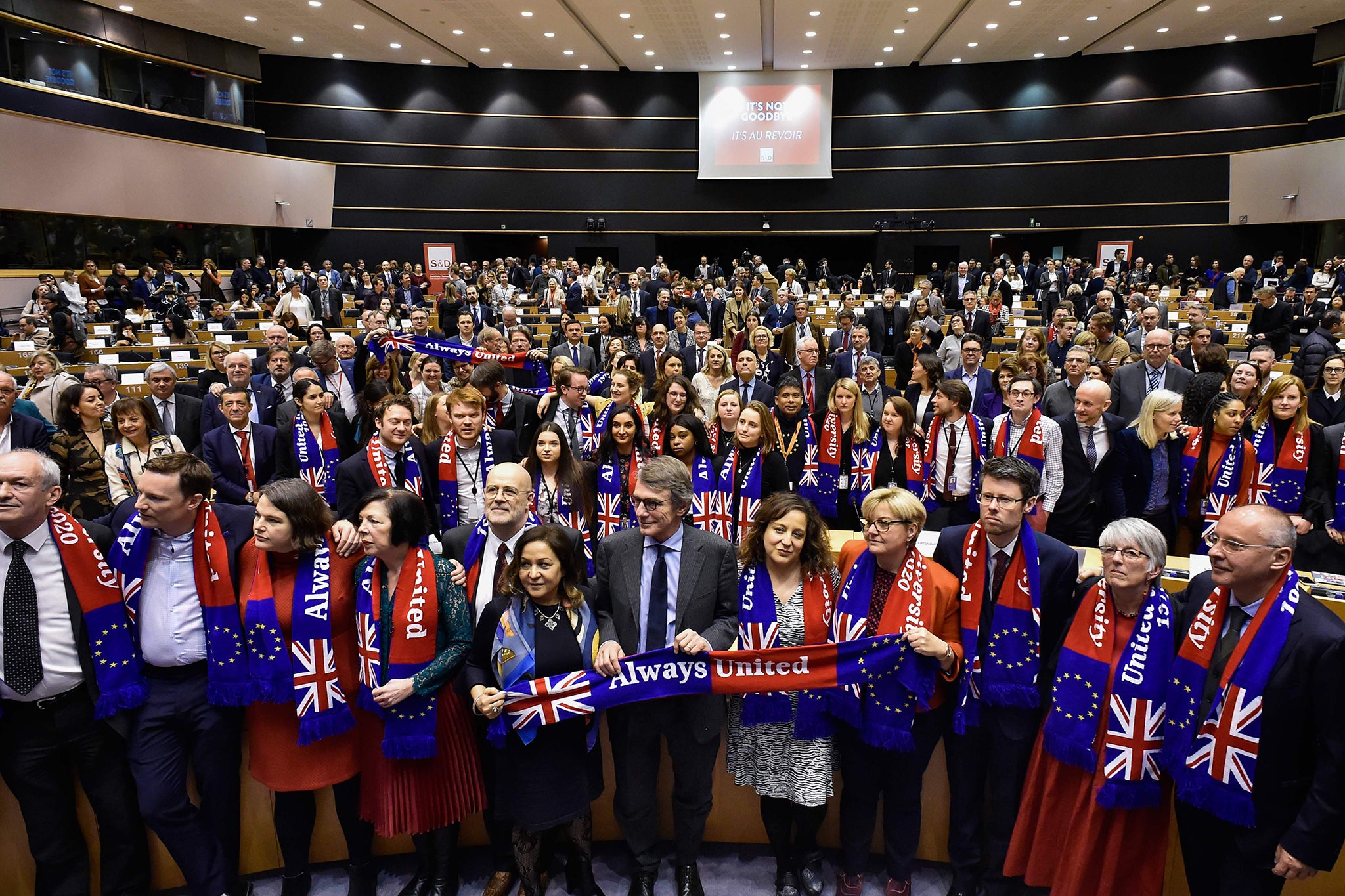
20/20 EU parliament backs UK withdrawal deal – 29 January 2020
Members of the European parliament overwhelmingly back the ratification of Britain’s departure, clearing the way for Brexit two days later on 31 January. Following the vote, members join hands and sing Auld Lang Syne
AFP/Getty

1/20 Britain votes to leave the European Union – 23 June 2016
A referendum is held on Britain’s membership of the European Union. Fifty-two per cent of the country votes in favour of leaving
AFP via Getty

2/20 David Cameron resigns – 24 June 2016
David Cameron resigns on the morning of the result after leading the campaign for Britain to remain in the EU
Getty

3/20 Theresa May takes the reins – 13 July 2016
Theresa May becomes leader of the Conservative party and prime minister, winning the leadership contest unopposed after Andrea Leadsom drops out
Getty

4/20 High Court rules parliament must vote on Brexit – November 2016 – 3 November 2016
The High Court rules that parliament must vote on triggering Article 50, which would begin the Brexit process

5/20 Article 50 triggered – 28 March 2017
The prime minister triggers Article 50 after parliament endorses the result of the referendum
Getty

6/20 May calls snap election – 18 April 2018
Seeking a mandate for her Brexit plan, May goes to the country
Getty

7/20 May loses majority as Labour makes surprise gain – 8 June 2017
After a disastrous campaign, Theresa May loses her majority in the commons and turns to the DUP for support. Jeremy Corbyn’s Labour party makes gains after being predicted to lose heavily
AFP/Getty

8/20 Negotiations begin – 19 June 2017
David Davis and Michel Barnier, chief negotiators for the UK and EU respectively, hold a press conference on the first day of Brexit negotiations. Soon after the beginning of negotiations, it becomes clear that the issue of the border between Northern Ireland and the Republic will prove a major sticking point
AFP/Getty

9/20 MPs vote that withdrawal deal must be ratified by parliament – 13 December 2017
The government suffers a defeat in parliament over the EU withdrawal agreement, guaranteeing that MPs are given a ‘meaningful vote’ on the deal

10/20 Boris Johnson resigns as foreign secretary – 11 July 2018
Following a summit at Chequers where the prime minister claimed to have gained cabinet support for her deal, Boris Johnson resigns as foreign secretary along with David Davis, the Brexit secretary
Reuters

11/20 Draft withdrawal agreement – 15 November 2018
The draft withdrawal agreement settles Britain’s divorce bill, secures the rights of EU citizens living in the UK and vice versa and includes a political declaration commiting both parties to frictionless trade in goods and cooperation on security matters. The deal also includes the backstop, which is anathema to many brexiteers and Dominic Raab and Esther McVey resign from the cabinet in protest
Getty

12/20 May resigns – 24 May 2019
After several failed attempts to pass her withdrawal agreement through the commons, Theresa May resigns
Reuters

13/20 Johnson takes over – 24 July 2019
Boris Johnson is elected leader of the Conservative party in a landslide victory. He later heads to Buckingham Palace where the Queen invites him to form a government
Getty

14/20 Parliament prorogued – 28 August 2019
Boris Johnson prorogues parliament for five weeks in the lead up to the UK’s agreed departure date of 31 October.
Stephen Morgan MP

15/20 Prorogation ruled unlawful – 24 September 2019
The High Court rules that Johnson’s prorogation of parliament is ‘unlawful’ after a legal challenge brought by businesswoman Gina Miller
Getty

16/20 Johnson agrees deal with Varadkar – October
Following a summit in Merseyside, Johnson agrees a compromise to the backstop with Irish prime minister Leo Varadkar – making the withdrawal agreement more palatable to Brexiteers
Getty

17/20 Final Say march demands second referendum – 19 October 2019
As parliament passes the Letwin amendment requiring the prime minister to request a further delay to Brexit, protesters take to the streets in the final show of force for a Final Say referendum
Getty

18/20 Johnson wins 80 seat majority – 12 December 2019
The Conservatives win the December election in a landslide, granting Boris Johnson a large majority to pass through his brexit deal and pursue his domestic agenda
Getty

19/20 Withdrawal deal passes parliament – 20 December 2019
The withdrawal agreement passes through the commons with a majority of 124
Getty

20/20 EU parliament backs UK withdrawal deal – 29 January 2020
Members of the European parliament overwhelmingly back the ratification of Britain’s departure, clearing the way for Brexit two days later on 31 January. Following the vote, members join hands and sing Auld Lang Syne
AFP/Getty
Yes, there’s talk of huge investment in the regions, of “levelling-up”, in other words repairing the damage first caused by the Thatcher years and more recently by Cameron’s austerity programme. This Tory prime minister will claim any credit on offer, even though he’ll only be clearing up the mess that his predecessors caused.
But throwing money at different regions doesn’t give them control, however much the money is needed. Communities should be empowered to raise money and decide how to spend it, free of Whitehall’s grip. That is what taking back control means.
We must begin a national conversation about power and who should wield it. A good start is the citizens’ assembly on climate, which began its deliberations last weekend. It’s brought together a representative group of people to tackle the biggest issue facing us – the climate emergency.
This model could work for our damaged democracy too. A citizens’ assembly to look at how power might be devolved to the regions which could decide themselves how investment is spent in their areas. They could examine options for a fairer electoral system so that in future, every vote in every constituency at every election counts. They could consider how a new institution might be established to represent England, echoing the assemblies in the other nations of the UK. And they could look at our archaic parliamentary system so that people feel it belongs to them.
Our broken democracy has taken a huge battering in the past three years. We need to come back together and, just as important, rehabilitate our politics.
Caroline Lucas is Green MP for Brighton Pavilion
Source: UK Politics - www.independent.co.uk


